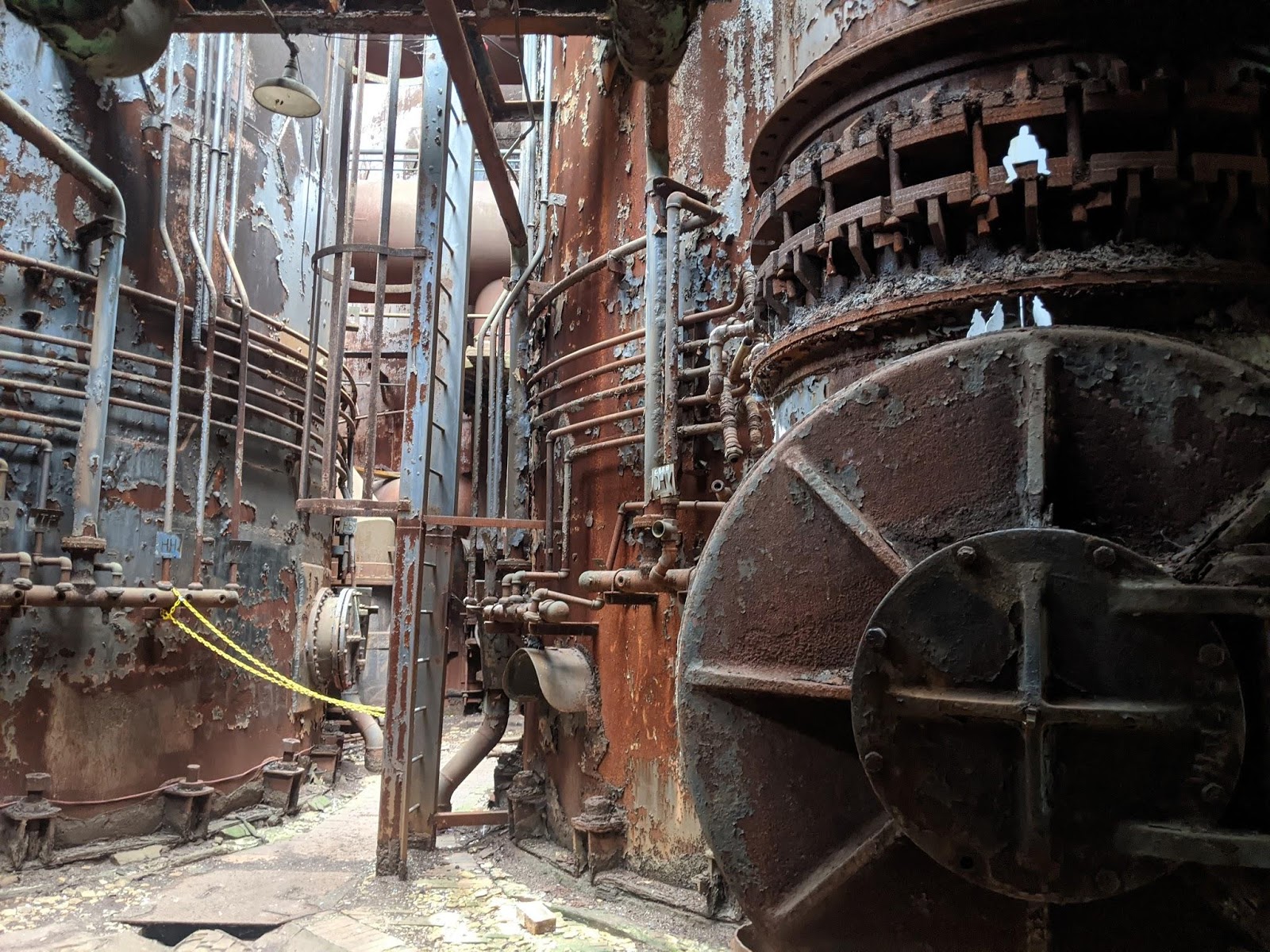
The town of Nuttallburg, West Virginia lays abandoned along the New River in Fayette County. Now on the National Register of Historic Places under National Park Service ownership, Nuttallburg serves as a monument to a failed vertical integration project undertaken by Henry Ford in the 1920s.
Vertical integration is “a form of internalization.” Generally, a firm wants to vertically integrate to gain control of materials or services and increase their profitability. By owning many or all aspects of their venture, a firm can ensure quality and efficiency. More importantly, perhaps, firms pursue vertical integration to minimize costs and maximize profits.
Vertical integration can also be forward (when they control the distribution of their products to customers) or backward (when a firm enters a supplier’s business to gain control of raw materials). Horizontal integration occurs when a firm merges or buys a related and/or competing firm.
Nuttallburg is an example of backward vertical integration. As a car manufacturer, Ford needed coal to power production plants and steel to build cars. Nuttalburg had coal and Ford leased the town after visiting in 1921. The Fordson Coal Company—under the supervision of Ford’s son, Edsel—updated and used the mine before the impossibility of controlling the railroad made it impractical for the company to keep. After Ford sold the mine in 1928, three owners continued operations until coal production ended in 1958.

Ford is far from the only industrialist to use Appalachia as a base for vertical integration. Andrew Carnegie is arguably the most famous pioneer of vertical integration, although many of his ventures were made possible by his rival/business partner, Henry Clay Frick. By owning coal mines, natural gas wells, transportation networks, and more, the Carnegie Steel Company became the most prominent steel supplier in the United States.
Similarly, Andrew William Mellon, a venture capitalist of his time, frequently identified and backed new companies then vertically integrated “these businesses under a dominant company.” Although he is best-known for banking in Pittsburgh, he was involved in “industries as diverse as oil, chemicals, metals, and transportation.”
Today, vertical integration continues with national and multinational corporations like Amazon and Walmart. Although these companies are based in Seattle, WA and Bentonville, AR, respectively, their projects affect everyone, including Appalachians.
Amazon, for example, controls its logistics sending “almost half of its shipments in the United States.” However, this logistic power is limited in places like West Virginia, where about half of the state is considered rural. In these rural areas, Amazon takes advantage of the United States Postal Service to deliver packages the “last mile,” relying on USPS’s larger door-to-door network. This reliance on USPS in rural areas allows Amazon to focus on deliveries in metro areas, like Asheville or Pittsburgh, where higher profits can be achieved. Further complicating this fraught delivery system is the fact that Amazon is “a blessing and a curse” for rural communities. It at once offers and ships hard-to-get products while undercutting local businesses.
Amazon is not yet considered a monopoly, but its expansion into the grocery business (Whole Foods), acquisition of Audible, an audiobook service, and range of private-label goods gives it an incredible and concerning amount of power.
Likewise, Walmart controls its Angus beef supply chain and is working to gain more control over its supply chain through digitization.
“Walmart currently serves as the primary low-cost retailer for a high contingent of rural poor Americans” wrote Kyle Emory for the Harvard Business School. As the only grocery option for many rural communities, Walmart is able to “manipulate food producers” and control prices.
“Instead of providing rural economic development, Walmart stores become wealth extraction points that bleed our rural communities dry,” the United Food and Commercial Workers union argued in their 2010 report, “Ending Walmart’s Rural Stranglehold.”
The podcast Inside Appalachia reported on the fallout from a Walmart superstore closure in Kimball, West Virginia. The residents, the 140 people laid off, and the local food pantry were initially left in a state of food insecurity without a primary grocery store or food donor.
Some may argue that vertical integration is not a bad thing. In fact, it could improve the goods and services that companies offer and thereby improve consumers’ lives. On the other hand, the power these companies acquire can lead to “misuse of resources and a reduction in economic welfare.”
Ford abandoned Nuttallburg. Carnegie made Pittsburgh temporarily rich—but the mills eventually closed, placing Pittsburgh in a period of economic precarity. What will the Appalachian legacy be of Amazon’s Jeff Bezos and Walmart’s Walton family?
Annie Chester is a writer and co-founder of expatalachians. She writes about the environment and culture in Appalachia and abroad.
Subscribe to The Patch, our newsletter, to stay up-to-date with new expatalachians articles and news from around Appalachia.


